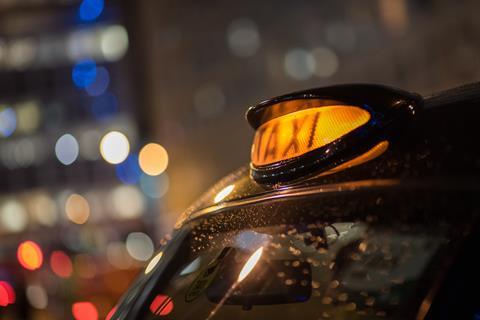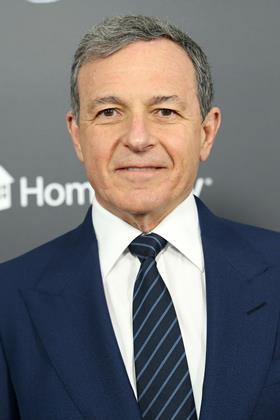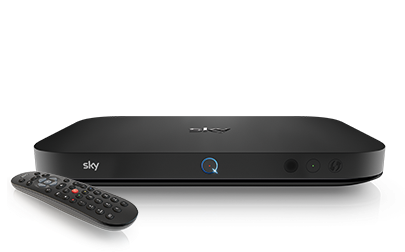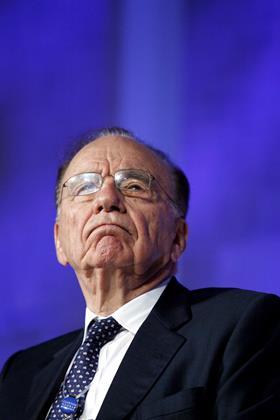The unfolding drama involving three of the world’s largest media groups has all the ingredients of an Oscar-winning script, writes Ray Snoddy.
There is greed, control and power aplenty, and endless twists and turns of the plot.

There are big personalities some of whom hate each other with a fury. Just out of view elemental forces, which some regard as sinister, are responsible for orchestrating events just by doing what they do.
To add to the general mayhem, politicians and regulators have been strutting their stuff – dissecting the entrails of the deal, in search of the meaning of plurality and where the public interest ultimately lies.
Along the way there was a telling intervention by an anonymous wisdom of a London black cab driver and a key turning point over a glass or two of wine in a California winery.
Then maybe, just maybe, like a Mozart opera, all the confusions and complexities will fall away and we will enter the period of resolution when the protagonists will see the light and unite against the common foe.
Or yet again another round of corporate chaos could be unleashed.
At its heart there is a simple story line about how nearly 30 years ago Rupert Murdoch came to the edge of bankrupting his newspaper, television and movie group to launch Sky in the UK.
To raise money to expand the satellite TV operation Murdoch floated what was then British Sky Broadcasting on the stock market, which saw the Murdoch stake fall to 39%, but the desire for full control of what became one of the most successful satellite television businesses in the world never faded.
“Fit and proper”
Murdoch nearly got there in 2011, but his bid for the rest of the company was fatally undermined by the phone-hacking scandal, which led to the closure of the News of the World. The situation created such a toxic political and regulatory environment that the bid was “voluntarily” withdrawn.
There was a need to let the dust and the prosecutions settle but to no-one’s surprise in December 2016 Murdoch returned to the fray with an £11.7 billion bid.
The communications regulator Ofcom found the Murdoch family and the Fox group to be “fit and proper” people to own broadcasting licences despite the News of the World scandal and more current, serious allegations of sexual harassment at Fox News in the US.
However, Ofcom expressed concerns about media plurality, particularly over the future of Sky News - a small but vital part of the plot that rumbled and threatened to erupt at any moment. As a result, the deal was last September referred for a formal investigation by the Competition and Markets Authority (CMA).
Soon after, the glasses of Californian wine took centre-stage.

They must have stimulated the creative juices of Rupert Murdoch and his fellow-drinker – Bob Iger, chairman and chief executive of the Walt Disney company, who discussed the current state of the industry where they had spent their working lives.
In the conversation both executives concluded that the growing impact of the West Coast tech giants and Netflix, all of them huge international players, meant that Disney and 21st Century Fox, for all their channels and movie studios, would be simply too small to compete on their own in future.
The words and the thoughts led to rapid action. Ten days before Christmas, Iger and Murdoch stood together in London to announce a £39 billion deal in which most of Murdoch’s entertainment interests, including Sky would be sold to Disney with Murdoch holding a stake in the enlarged Disney group.
The decision prompted prolonged scratching of heads. Was the 87-year-old Murdoch finally retiring, departing hurt from the field of battle and throwing in the towel or would there turn out to be an angle that no-one else had envisaged?
Read more Analysis: Why Disney wants to buy Fox
Then it was time for the unexpected intervention of the London cab driver.
The man in the back of the cab was Brian Roberts, Chief Executive of Comcast, the largest US cable company, and owner of NBC Universal.
The cabby waxed lyrical about the qualities of Sky versus its rivals and as a result, Roberts went off to test out Sky’s Q box in a nearby store.

Who knows how decisive the impromptu meeting was – Comcast had already been rumoured as a potential bidder for Sky.
For whatever reason Roberts decided to gate crash the Iger-Murdoch drinks party with a £12.50 a share bid for Sky, valuing the European satellite television group at £22 billion - £4 a share more than the Fox bid.
Now we have a three-way multi-billion corporate shoot-out, and one that is personal in different ways.
Roberts and Iger, it is said, really don’t like each other very much, adding an extra edge to the proceedings. It is personal for Murdoch too because he wants to hand on a media legacy to his sons James and Lachlan - and perhaps one that extends beyond Fox News, American sports channels and newspapers such as The Times and The Sun.
Meanwhile regulators and politicians are going ahead with their inevitably ponderous review of the original Murdoch bid, as they must, as if none of the noises off, or excitement, were even happening.
By June 13th Culture Secretary Matt Hancock must decide what to do, following a recommendation from the CMA, which he has received but which has not yet been made public.
In its provisional finding the CMA argued that the deal was not in the public interest on media plurality grounds because it would give the Murdoch family too much influence over public opinion and the political agenda in the UK.
It would be surprising if the CMA has changed its mind from its provisional findings, even though Fox strengthened undertakings to protect the independence of Sky News, including an independent board and a 15-year commitment of financial support.

Hancock, who understands very well the intensity of the competition now facing the traditional media from the likes of Facebook, Amazon, Google and Apple, faces a tricky political decision. There are some in the House of Commons who are against all-things-Murdoch on a visceral level.
The Culture Secretary could well approve the deal as long as he is satisfied that the independence of Sky News – and its survival – can be guaranteed.
To add to the potent mixture Disney has offered to buy Sky News if that helps and Comcast has promised continued editorial independence.
The game is on, or will soon be, and then it will come down to determination and financial firepower in the final act.
Will Disney increase its bid and emerge victorious alongside Murdoch in the winery deal?
Disney could walk away leaving Murdoch to complete his original Sky bid although that is unlikely because it does not address the over-arching strategic issues raised by the bid in the first place.
Comcast is the wild card and must be odds on to emerge as the winner particularly because the Sky board has already rejected the Murdoch offer in the face of the superior Comcast offer.
Comcast is in a strong position because it has the appetite and the need for a European expansion as cord-cutting in the US continues to nibble at its core American cable business. A Sky a purchase by Comcast would face few, if any, regulatory hurdles.
Then there is Rupert Murdoch who has made a speciality throughout his career of springing surprises. Could he produce another last surprise out of the hat?
If there is going to be a final resolution or epiphany with the full orchestra soaring, then it would take the shape of Disney securing the Fox US entertainment interests, Comcast the Sky businesses in five European countries, leaving the Murdoch family with enough media assets to live to fight another day.
And somewhere in the outcome, if there is going to be an operatic resolution worthy of an Oscar, there would have to be a mechanism to prevent Sky News becoming a corporate orphan and emerge financially viable and editorially independent.
Read more Regional focus: North America
























No comments yet